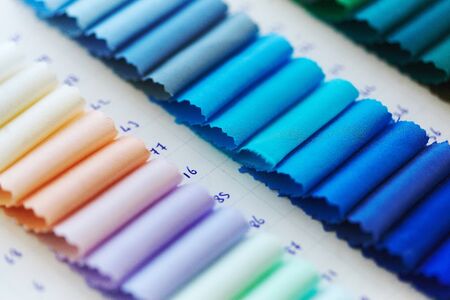Introduction to British Curtain Colour Trends
When it comes to UK interior design, curtain colour choices play an essential role in shaping the ambiance and character of British homes. The interplay between tradition and modernity in the United Kingdom is often reflected through a thoughtful selection of curtain colours, each echoing the distinctive British lifestyle and sensibilities. From elegant Victorian townhouses to cosy countryside cottages, curtains are more than just window dressings; they are an integral aspect of personal expression and spatial harmony.
British homeowners typically favour curtain colours that complement their unique architectural heritage, seasonal climate, and love for understated elegance. This attention to colour selection is not only about aesthetics but also about creating a sense of comfort and familiarity within living spaces. Whether drawing inspiration from the muted tones of a misty London morning or the vibrant hues found in a blooming English garden, curtain trends in the UK reveal a story of cultural identity and evolving taste.
The following table highlights how various curtain colours are perceived within UK homes and what they symbolise:
| Curtain Colour | Associated Mood | Reflection of British Sensibility |
|---|---|---|
| Deep Navy | Serenity, Sophistication | Evokes classic British refinement; pairs well with period features |
| Sage Green | Calmness, Nature-Inspired | Reflects rural landscapes; ideal for countryside dwellings |
| Dusky Pink | Warmth, Subtlety | Adds a gentle touch without overpowering traditional interiors |
| Charcoal Grey | Modernity, Balance | A contemporary choice that respects architectural history |
This nuanced approach to colour selection ensures that curtain trends across the UK continue to adapt while remaining rooted in timeless British charm and practicality.
2. Classic British Hues: A Timeless Palette
When it comes to curtain colour trends in UK interior design, classic British hues remain a steadfast choice for homeowners seeking both elegance and heritage. The enduring charm of traditional shades such as sage green, Oxford blue, and heritage greys is unmistakable—these colours have long been associated with the quintessential British home. Their versatility allows them to seamlessly blend with period properties as well as contemporary spaces, evoking a sense of calm sophistication while paying homage to the country’s storied design history.
The Enduring Appeal of Timeless Colours
Traditional British hues are more than just colours; they are cultural touchstones that reflect the nation’s affinity for understated luxury and timeless style. Sage green, reminiscent of the lush English countryside, brings a subtle earthiness to any room, while Oxford blue offers depth and poise—a nod to academic prestige and stately homes. Heritage greys bridge the gap between old and new, providing a neutral foundation that enhances architectural features without overpowering the space.
Popular Classic Hues for Curtains
| Colour Name | Description | Ideal Pairings |
|---|---|---|
| Sage Green | Soft, muted green inspired by traditional English gardens | Creams, natural woods, brass accents |
| Oxford Blue | Deep, rich blue symbolising sophistication and heritage | Ivory, pale yellows, dark walnut finishes |
| Heritage Grey | Classic mid-tone grey balancing warmth and neutrality | Muted pinks, charcoal, antique golds |
Why Classic Hues Remain Favourites in the UK
The timeless palette not only withstands fleeting trends but also adapts gracefully to evolving tastes. Homeowners across Britain appreciate these shades for their ability to create harmonious interiors that feel both grounded and refined. Whether used in grand bay windows or cosy cottage nooks, classic British hues for curtains offer a sense of permanence—making them an investment in both style and cultural continuity.
![]()
3. Contemporary Colours on the Rise
Within the landscape of UK interior design, curtains are no longer limited to safe neutrals or predictable shades. Recent years have witnessed a vibrant shift towards contemporary colours that infuse British homes with personality and a sense of modernity. This trend is largely inspired by a blend of global design influences and the UKs own evolving aesthetic preferences, which now embrace bolder, more expressive hues.
Designers and homeowners alike are turning to unexpected colours such as ochre, blush pink, and teal—each offering its own distinct mood while remaining versatile enough for a range of settings. Ochre brings a warm, earthy sophistication reminiscent of British heritage tones but with a contemporary edge. Blush pink introduces a soft yet lively energy, often used to lighten up traditional interiors or add a playful twist to minimalist spaces. Teal, meanwhile, offers depth and richness, working beautifully against both dark wood and crisp whites so commonly found in period properties.
| Colour | Design Influence | Typical Pairings |
|---|---|---|
| Ochre | Modern rustic & Heritage revival | Deep blues, charcoal greys, forest greens |
| Blush Pink | Scandi-inspired & Urban minimalism | Creams, soft greys, brass accents |
| Teal | Art Deco revival & Eclectic British style | Golds, rich browns, crisp whites |
This movement toward brighter or unconventional curtain colours is also a reflection of the UK’s desire for interiors that feel bespoke and full of character. It invites homeowners to experiment with layers and contrasts—pairing bold curtain fabrics with neutral walls or mixing textures for added depth. Whether in a London flat or a countryside cottage, these contemporary colours create focal points that enliven any room while retaining an unmistakably British charm.
4. Seasonal & Regional Influences
The UK’s ever-shifting seasons and diverse regional identities play a pivotal role in shaping curtain colour trends within British interior design. From the brisk, grey winters of the North to the gentle, sun-dappled summers of the South, seasonal light and mood are essential considerations when choosing curtain colours for any home.
Seasonal Colour Preferences
| Season | Popular Curtain Colours | Design Rationale |
|---|---|---|
| Spring | Sage green, soft blush, pale blue | Echoes new beginnings and fresh natural light, bringing optimism indoors |
| Summer | Cornflower blue, lemon yellow, crisp white | Maximises brightness, amplifies airiness and complements vibrant outdoor greenery |
| Autumn | Burnt orange, ochre, rich plum | Reflects the warmth of falling leaves and invites a cosy atmosphere as evenings draw in |
| Winter | Charcoal grey, deep navy, forest green | Adds depth and comfort, counterbalancing the muted natural light typical of British winters |
Regional Variations Across the UK
Curtain colour choices are also influenced by local architecture and regional sensibilities. Urban city flats in London or Manchester often favour sophisticated neutrals—think elegant greys or dusky pinks—that harmonise with modern design schemes and reflect metropolitan style. In contrast, countryside cottages across Cornwall or the Lake District tend to embrace earthy tones such as moss green or warm terracotta, echoing their bucolic surroundings and heritage features.
The Impact of Light & Landscape
Northern regions with shorter daylight hours often select lighter curtains to enhance available sunlight, while southern homes might opt for bolder hues that stand up to brighter summer days. Coastal areas frequently incorporate sea-inspired shades—teal or sandy beige—paying homage to the surrounding landscape.
Personalising Your Space Seasonally & Regionally
A keen understanding of both seasonal shifts and your home’s geographical context ensures your curtain choices remain timeless yet deeply personal. Whether you’re elevating a city penthouse with minimalist hues or cosying up a rural retreat with nature-inspired palettes, aligning curtain colours with your locale and the rhythm of the British year is an artful nod to true UK interior style.
5. Pairing Colours with British Architectural Features
When it comes to curtain colour trends in UK interior design, the interplay between fabric hues and classic architectural features is paramount. British homes are renowned for their distinct elements—think bay windows, ornate cornicing, and intricate Victorian details. Selecting curtain colours that not only complement but also accentuate these features can elevate a room’s entire aesthetic.
Bay Windows: Maximising Light and Character
Bay windows, a hallmark of British architecture, invite natural light while offering an elegant focal point. Soft neutrals such as warm taupe or muted sage create a seamless frame, allowing sunlight to diffuse gently. For those seeking drama, deep peacock blue or rich burgundy curtains add contrast and lend an air of sophistication without overpowering the window’s graceful curves.
Colour Suggestions for Bay Windows
| Architectural Feature | Recommended Curtain Colours | Effect |
|---|---|---|
| Bay Windows | Taupe, Sage Green, Deep Blue, Burgundy | Enhances light, frames view, adds depth |
Cornicing: Highlighting Ornate Detailing
Traditional cornicing draws the eye upward and defines the room’s edges. To celebrate this detail, opt for curtain colours that echo or subtly contrast with the ceiling’s palette. Pale stone or cream curtains provide continuity with white plasterwork, while olive or dusky rose offers a gentle juxtaposition that brings out the architectural intricacies.
Curtain Colours for Cornicing Accents
| Architectural Feature | Recommended Curtain Colours | Design Tip |
|---|---|---|
| Cornicing | Pale Stone, Cream, Olive Green, Dusky Rose | Echo ceiling tones; introduce soft contrast for depth |
Victorian Details: Embracing Heritage with Modern Flair
Victorian-era homes feature stained glass, decorative mouldings, and rich woodwork. Contemporary curtain trends pair these historical elements with modern palettes—think charcoal paired with blush pink or emerald green set against crisp ivory. This fusion respects tradition while injecting fresh energy into the space.
Pairing Modern Colours with Victorian Elements
| Architectural Feature | Recommended Curtain Colours | Aesthetic Outcome |
|---|---|---|
| Victorian Details | Charcoal & Blush Pink, Emerald & Ivory | Modern heritage blend; highlights craftsmanship |
The key to successful pairing lies in balancing contemporary colour trends with the enduring charm of British architecture—creating interiors where each element sings in harmonious dialogue.
6. Eco-Friendly Dyes and Sustainable Choices
As UK homeowners become increasingly conscious of their environmental footprint, the curtain industry is experiencing a distinct shift towards eco-friendly dyes and sustainable fabric choices. The movement prioritises natural pigments and organic materials, which not only reduce chemical use but also introduce a fresh, earthy palette to contemporary spaces. This commitment to sustainability is redefining colour trends for curtains in UK interior design, with colours that echo nature’s own harmony—think soft ecrus, olive greens, muted blues, and warm terracottas. These hues are derived from plant-based or mineral dyes, offering a unique, gentle vibrancy that feels both modern and mindful.
Sustainable Curtain Fabrics and Their Colour Profiles
| Fabric Type | Eco-Friendly Dye Characteristics | Popular Colours in UK Homes |
|---|---|---|
| Organic Cotton | Absorbs natural dyes well, resulting in subtle pastels and gentle earth tones | Sage green, blush pink, oatmeal, dove grey |
| Linen | Offers a textured finish with organic dyes; enhances understated elegance | Moss green, sand beige, stone blue, clay brown |
| Bamboo Blends | Takes on soft washes of colour; perfect for relaxed urban schemes | Pale mint, sky blue, warm ivory, almond |
Why Choose Sustainable Curtains?
- Reduces exposure to harsh chemicals in your home environment
- Supports local artisans and eco-conscious brands within the UK
- Provides unique colours inspired by the British countryside and coastlines
The Future of Colour Trends: Nature-Inspired Living
This eco-friendly direction is more than just a fleeting fashion—it reflects a deeper desire to align interiors with the rhythms of nature. By opting for curtains coloured with sustainable dyes and crafted from renewable fabrics, UK homeowners are setting a new standard in interior aesthetics: one where beauty and responsibility go hand-in-hand. As this trend continues to grow, expect to see more homes embracing serene palettes that celebrate the natural world while supporting ethical production practices.


